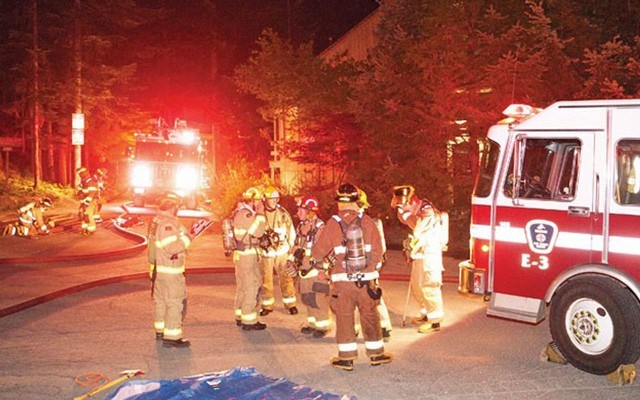British Columbia's "broken arbitration system" for collective bargaining is contributing to unsustainable cost increases for municipalities, according to a report from the Canadian Federation of Independent Businesses (CFIB).
The issue is detailed in CFIB's recently released BC Municipal Spending Watch report.
"The bottom line is that municipal spending continues to be on an unsustainable path, and a big reason for that is the lack of control of municipal wages and benefits," said CFIB's vice president for B.C. and Alberta Richard Truscott.
"The collective bargaining system we have in B.C. for municipal governments is terribly flawed and doesn't take into account local economic conditions, and also doesn't account for the ability for local taxpayers to pay such rapidly rising wage bills."
In Whistler, payroll expenses were 35-per-cent of total spending at municipal hall in 2016, down from 36 per cent in 2015.
"The majority of our staff is not unionized, so we don't have an arbitration process for what we call our handbook staff. The arbitration process does come into play with our unionized firefighters," said Whistler Mayor Nancy Wilhelm-Morden, adding that the Union of BC Municipalities (UBCM) has passed several resolutions asking the province to step in.
"They've, for whatever reason, refused to do so, so that is where there is a significant issue in my view," Wilhelm-Morden said.
In the Resort Municipality of Whistler's 2016 Statement of Financial Information, 22 Whistler firefighters were listed as making over $100,000, which municipal CAO Mike Furey attributed in part to the strength of the union, and what he called "a very aggressive approach to their collective bargaining."
Whistler's firefighters negotiated a settlement in 2015, which covered 2012 to 2019 and included wage increases of 2.5 per cent, per year.
Whistler's firefighters have never gone to arbitration over a contract settlement, according to the RMOW.
But the British Columbia Professional Fire Fighters' Association does not agree that the arbitration system is broken.
"As an essential service with an inability to strike, the Fire and Police Services Collective Bargaining Act requires an arbitrator be brought in should a negotiated settlement not occur," said president Gord Ditchburn in an emailed statement.
"In looking back over the many years, arbitrated settlements are not the norm and in fact many communities are able to settle their agreements quickly and fairly. More than three quarters of B.C.'s firefighters (4,000 members in 52 communities) have freely negotiated collective agreements settled through the end of 2019 without having to go to arbitration."
But when the settlements do go to arbitration, the decision shouldn't be based on a province-wide perspective, said UBCM president Wendy Booth.
"That's the challenge, is that the local circumstances aren't taken into consideration when these settlements come down, and then that takes the protective services section of their local budgets much higher than the regular staff," Booth said.
"And then there is a disconnect there, so then the other staff wages go up as well, and so it's a cost that we can't control."
UBCM has raised this issue with previous provincial governments, but has yet to strike up the discussion with the new decision makers in Victoria.
"It would make a big difference in the local government budgets if these settlements (incorporated) local considerations," Booth said.




